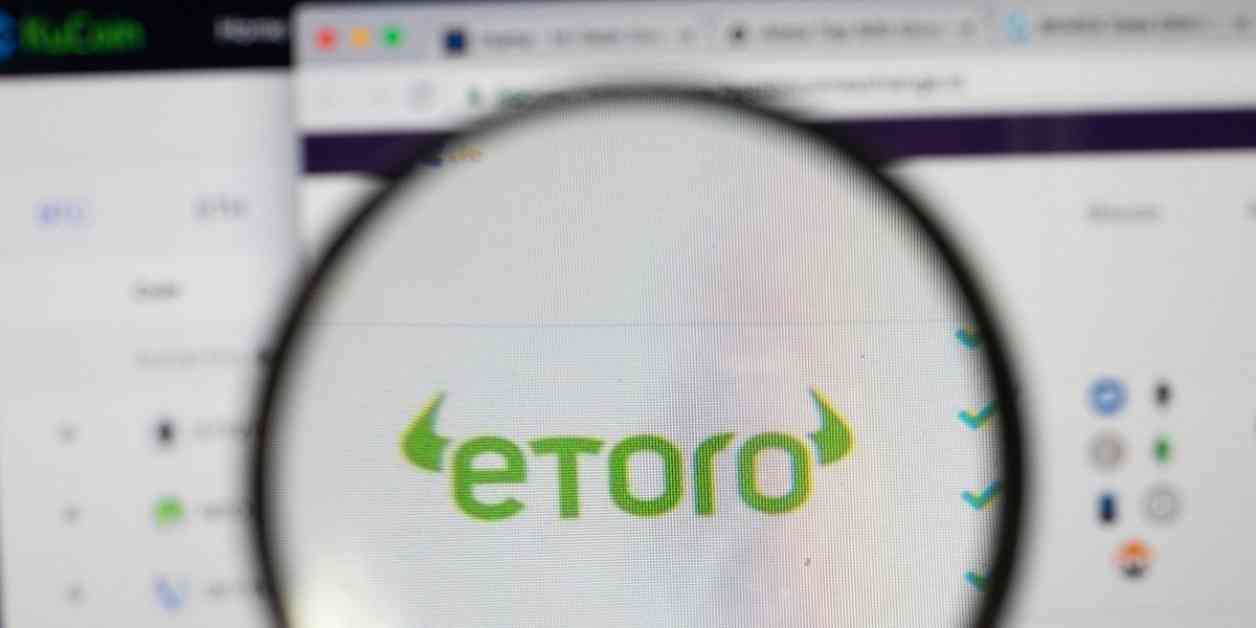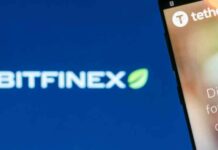eToro, a popular trading platform, recently reached a settlement with the U.S. Securities and Exchange Commission (SEC) over charges that it operated as an unregistered broker and clearing agency, as well as facilitated trading in certain crypto assets that are considered securities. This agreement requires eToro to pay a $1.5 million fine and limits the company to trading only three digital assets: bitcoin (BTC), bitcoin cash (BCH), and ether (ETH). While eToro may not be a major player in the U.S. crypto market with only 240,000 customer accounts compared to Coinbase’s 100 million, this settlement is significant as it sheds light on the SEC’s stance on which digital assets are not securities.
Legal experts have weighed in on this settlement, offering various perspectives on the implications and significance of the SEC’s decision. Joseph Tully, a securities litigation lawyer at Tully & Weiss, noted that the SEC’s sanctioning of BTC, BCH, and ETH indicates that these assets are considered commodities rather than securities. However, he emphasized that this settlement does not provide comprehensive legal guidance on other digital assets.
Drew Hinkes, a Partner at K&L Gates, and Joshua Ashley Klayman, U.S. Head of Fintech and Head of Blockchain and Digital Assets at Linklaters, also shared their insights on the eToro settlement. Hinkes highlighted the importance of parties’ freedom to agree to settlements, while Klayman cautioned against making assumptions based on the Cease and Desist Order, as it does not establish any specific allegations or findings regarding digital assets and securities transactions.
Bill Hughes, a lawyer at Consensys, and former SEC lawyer Alexandra Damsker expressed contrasting views on the settlement. Hughes did not provide any specific commentary, while Damsker criticized the decision to settle without seeking a determination from the courts, suggesting that the SEC does not have the final say in such matters.
In light of these expert opinions, it is evident that the eToro settlement raises questions about the classification of digital assets as securities and commodities and the SEC’s jurisdiction over such assets. While the settlement provides some clarity on the SEC’s stance on BTC, BCH, and ETH, it does not offer a comprehensive framework for determining the regulatory status of other digital assets.
As the crypto industry continues to evolve and regulators grapple with defining the legal status of digital assets, it is essential for market participants to navigate these complexities with caution. The eToro settlement serves as a reminder of the regulatory challenges facing the crypto sector and the importance of legal compliance in the evolving landscape of digital finance.
Expert Reactions and Analysis
Legal experts have analyzed the eToro settlement with the SEC from various perspectives, offering insights into the implications and significance of the agreement. Joseph Tully, a securities litigation lawyer, highlighted the SEC’s acknowledgment of BTC, BCH, and ETH as commodities, emphasizing the lack of legal guidance on other digital assets. Tully’s interpretation underscores the need for further clarity on the regulatory classification of digital assets beyond the three specified by the SEC.
Drew Hinkes, a Partner at K&L Gates, emphasized the parties’ freedom to enter into settlements and cautioned against drawing definitive conclusions from the Cease and Desist Order. Hinkes’ perspective underscores the nuances of settlement agreements and the need for a comprehensive understanding of the underlying issues in regulatory enforcement actions.
Joshua Ashley Klayman, an expert in fintech and blockchain, highlighted the limited information available on the specific digital assets subject to securities transactions in the eToro case. Klayman’s analysis underscores the importance of transparency and clarity in regulatory proceedings involving digital assets and the need for a more detailed examination of the SEC’s jurisdiction in such matters.
Bill Hughes, a lawyer at Consensys, and former SEC lawyer Alexandra Damsker offered contrasting views on the eToro settlement. While Hughes did not provide detailed commentary, Damsker criticized the decision to settle without seeking a determination from the courts, suggesting that the SEC’s authority is not absolute in defining the regulatory status of digital assets. Damsker’s perspective highlights the complexities of regulatory enforcement actions in the crypto industry and the challenges of navigating legal uncertainties in this evolving landscape.
Implications for the Crypto Industry
The eToro settlement with the SEC has broader implications for the crypto industry, raising questions about the regulatory treatment of digital assets and the boundaries of the SEC’s jurisdiction. The SEC’s decision to sanction eToro for operating as an unregistered broker and clearing agency underscores the regulator’s focus on enforcing compliance with securities laws in the crypto space.
The limitation imposed on eToro to trade only BTC, BCH, and ETH highlights the challenges faced by crypto platforms in navigating regulatory requirements and ensuring legal compliance. This restriction may impact eToro’s business operations and strategic plans, signaling the need for greater clarity on the regulatory status of digital assets beyond the three specified by the SEC.
As the crypto market continues to expand and evolve, regulatory clarity is essential for fostering innovation and investor protection. The eToro settlement serves as a reminder of the regulatory challenges facing the industry and the importance of engaging with regulators to ensure compliance with securities laws and regulations.
Conclusion
The eToro settlement with the SEC has sparked a debate among legal experts and industry stakeholders on the regulatory classification of digital assets and the implications for the broader crypto ecosystem. While the SEC’s decision to sanction eToro for securities violations provides some clarity on the regulatory status of BTC, BCH, and ETH, it also raises questions about the treatment of other digital assets and the SEC’s jurisdiction over the crypto market.
Moving forward, it is crucial for market participants to engage with regulators, legal experts, and industry peers to navigate the regulatory complexities of the crypto industry effectively. The eToro settlement serves as a reminder of the importance of regulatory compliance and transparency in the evolving landscape of digital finance, highlighting the need for ongoing dialogue and collaboration to ensure a robust and compliant crypto ecosystem.


















